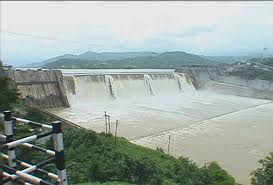K J Joy
Equity and justice in groundwater access: connecting the dots
Posted on 29 Oct, 2021 12:32 AMIndia is drying up fast with low costs and the ease of availability of groundwater technologies triggering uncontrolled extraction of groundwater. And groundwater is not only important for irrigation in India. About 90 percent of rural drinking water comes from groundwater while 50 percent of the water supplied to urban areas comes from groundwater besides 70 percent for irrigation!

India Unshackled: A book discussion
Posted on 30 Apr, 2018 03:43 PMAlternative Futures: India Unshackled is a new book that dares to imagine what India could be.

What we should know about National Water Commission
Posted on 29 Jun, 2017 07:26 PMThe landmark report titled A 21st century institutional architecture for India's water reforms submitted by the expert committee chaired by Dr Mihir Shah on restructuring the

A river on fire
Posted on 17 Sep, 2016 05:52 PMRiver Cauvery has been in the epicentre of agitation and violence in the states of Karnataka and Tamil Nadu--both fighting over their share of the Cauvery water. Thanks to the deficit monsoon this year, the Cauvery basin reservoirs in both these neighbouring states are only filled half as much as they should be![1].

National water framework law – An explanatory note developed by the Sub-Group of Planning Commission’s Working Group on Water Governance for the Twelfth Plan
Posted on 19 Sep, 2012 05:30 PMThis explanatory note by the Planning Commission on the national water law begins with an account of why a national water law is necessary.
Life, livelihoods, ecosystems, culture: Entitlements and allocation of water for competing uses
Posted on 27 Dec, 2011 05:10 PM This report has been prepared by the members of the working group set up by the Forum for Policy Dialogue on Water Conflicts in India on the issue of “Entitlements and allocations for livelihoods and ecosystem needs". The introductory chapter sets out the context of the report. The immediate context is the work of the Forum over the last 4-5 years, and the learning that this particular issue leads to many water conflicts in India.
This report has been prepared by the members of the working group set up by the Forum for Policy Dialogue on Water Conflicts in India on the issue of “Entitlements and allocations for livelihoods and ecosystem needs". The introductory chapter sets out the context of the report. The immediate context is the work of the Forum over the last 4-5 years, and the learning that this particular issue leads to many water conflicts in India.
Regenerating natural resources and rural livelihoods in rainfed areas of India: A civil society consultation by WASSAN to discuss priorities for the twelfth five year plan
Posted on 26 Jan, 2011 09:13 PM A civil society consultation was held on “Regenerating natural resources and rural livelihoods in rainfed areas of India” by WASSAN at Hyderabad in December 2010 to discuss priorities for the twelfth five year plan. The Planning Commission, Government of India has been steering the process of development in India by conceptualizing five year plans and had sought inputs from civil society organizations, activists groups, networks of CBOs / NGOs, donors and others for preparing an approach paper for twelfth plan.
A civil society consultation was held on “Regenerating natural resources and rural livelihoods in rainfed areas of India” by WASSAN at Hyderabad in December 2010 to discuss priorities for the twelfth five year plan. The Planning Commission, Government of India has been steering the process of development in India by conceptualizing five year plans and had sought inputs from civil society organizations, activists groups, networks of CBOs / NGOs, donors and others for preparing an approach paper for twelfth plan.
The objective of the consultation workshop was to contribute to the process of defining broad contours of twelfth plan with a focus on rural livelihoods the thrust area being policy framework, funding support, institutional arrangements etc., by -
- Consolidating the lessons from good practices in promoting and protecting rural livelihoods in the country, that could be integrated in twelfth five year plan.
- Systematically articulating issues and concerns (bottlenecks) in promoting and protecting rural livelihoods, which could be addressed in the twelfth five year plan.